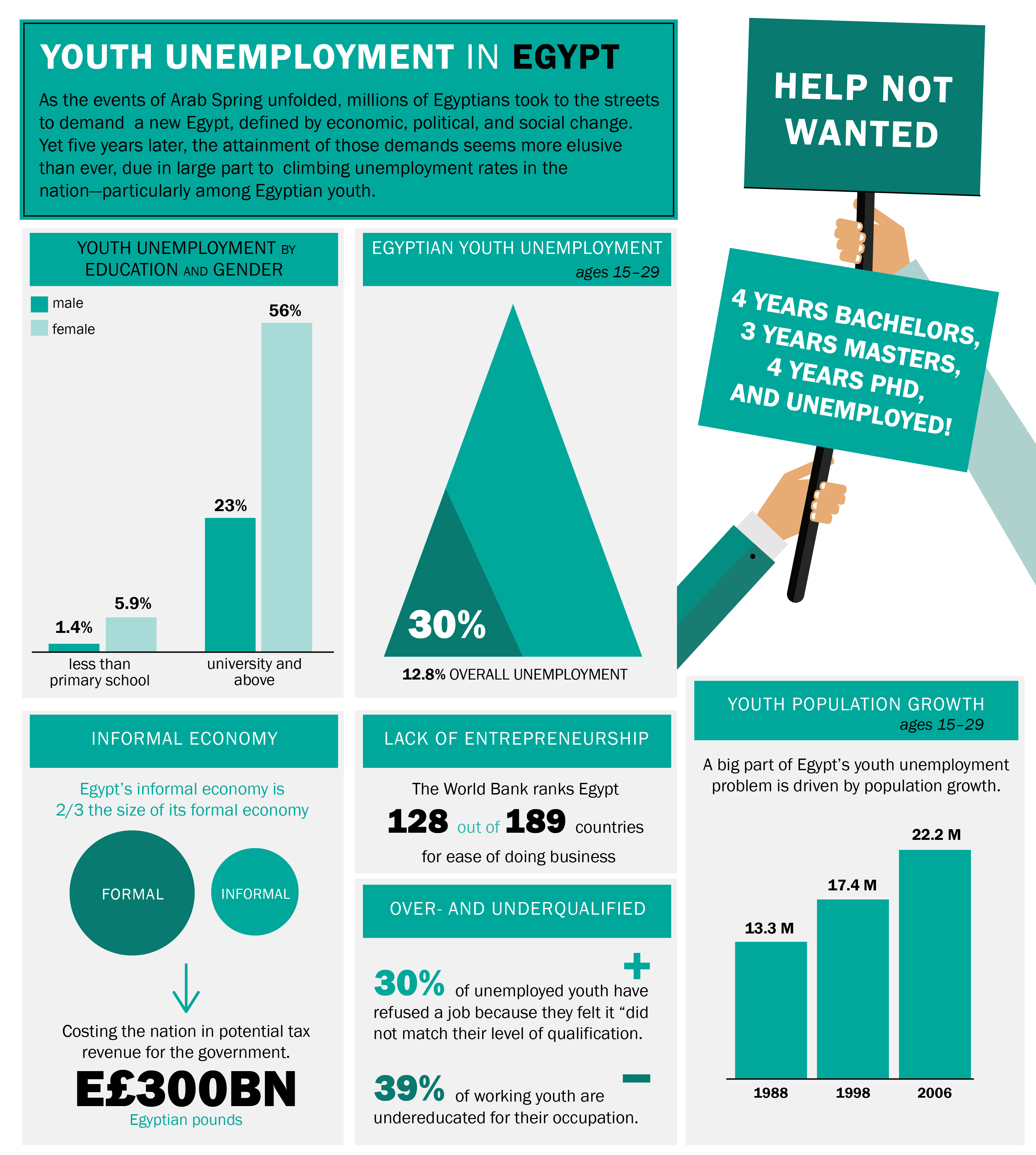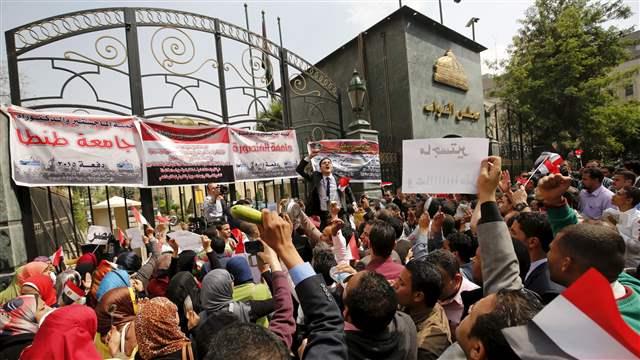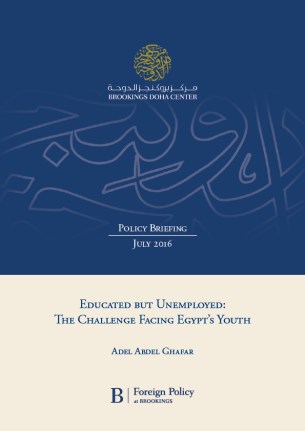Content from the Brookings Doha Center is now archived. In September 2021, after 14 years of impactful partnership, Brookings and the Brookings Doha Center announced that they were ending their affiliation. The Brookings Doha Center is now the Middle East Council on Global Affairs, a separate public policy institution based in Qatar.
Millions of Egyptians took to the streets in January 2011 chanting “‘ish, hurriyya, ‘adalah ijtima‘iyya,” or bread, freedom, and social justice. This simple chant captured protestors’ desire for a new Egypt defined by economic, political, and social change. Five years later, however, the attainment of those demands seems more elusive than ever. In the economic sphere, Egypt still faces the major challenge of high unemployment, particularly among educated youth. Why do so many of Egypt’s young university graduates struggle to find employment?
Read “Educated but unemployed: The challenge facing Egypt’s youth“
In this policy briefing, Adel Abdel Ghafar analyzes the roots of Egypt’s youth unemployment crisis, starting with the structural issues plaguing the country’s educational system. He then examines other contributing factors including neoliberal economic reforms, gender inequality, and the lack of entrepreneurship. Abdel Ghafar warns that failing to address the unemployment issue will increase the likelihood of another uprising.
Abdel Ghafar thus argues that the Egyptian government must urgently undertake reforms and devote extensive resources to dealing with youth unemployment. Specifically, he recommends ways in which Egypt can revamp public university funding, promote vocational training, stimulate entrepreneurship, and increase the participation of women in the workforce.

The Brookings Institution is committed to quality, independence, and impact.
We are supported by a diverse array of funders. In line with our values and policies, each Brookings publication represents the sole views of its author(s).





